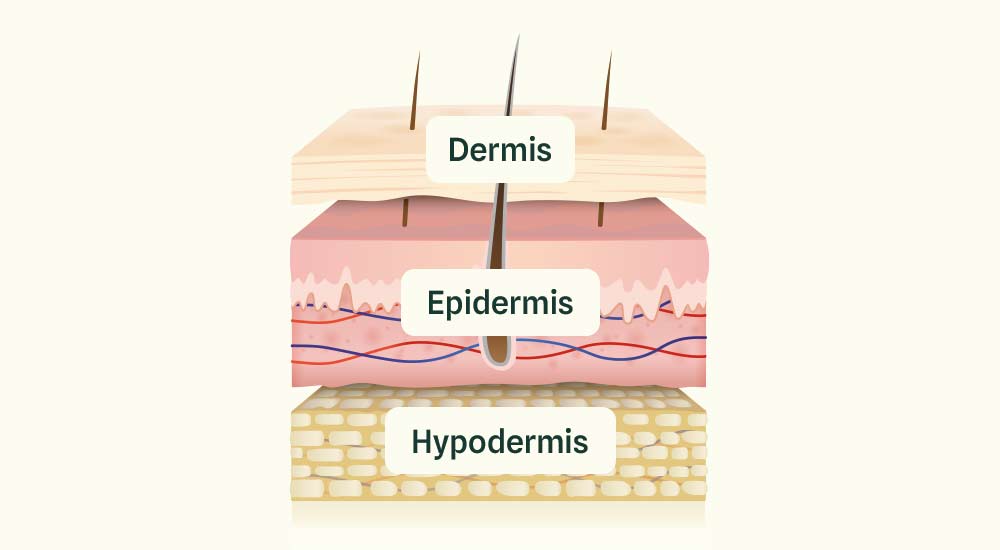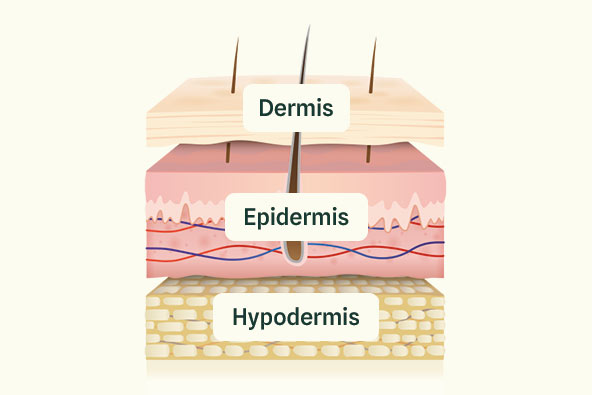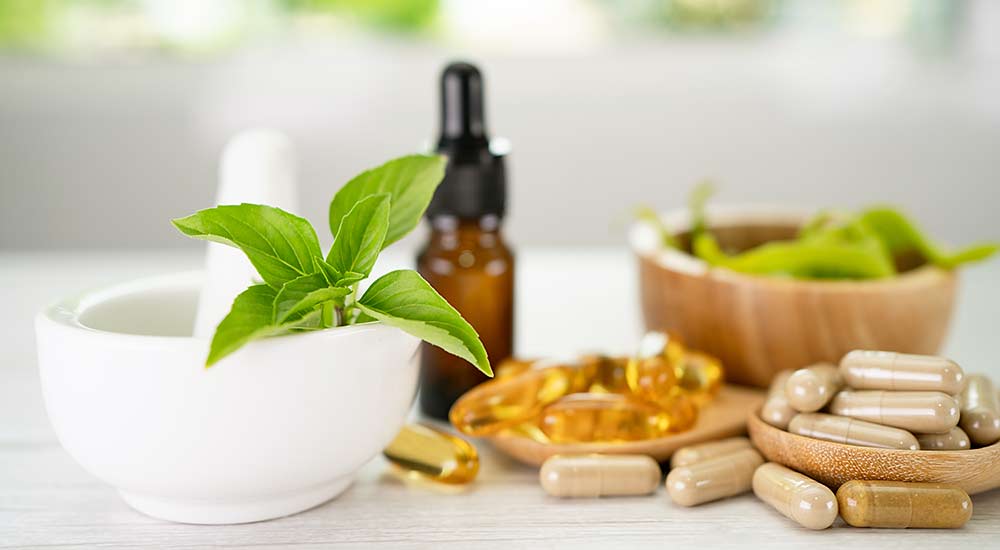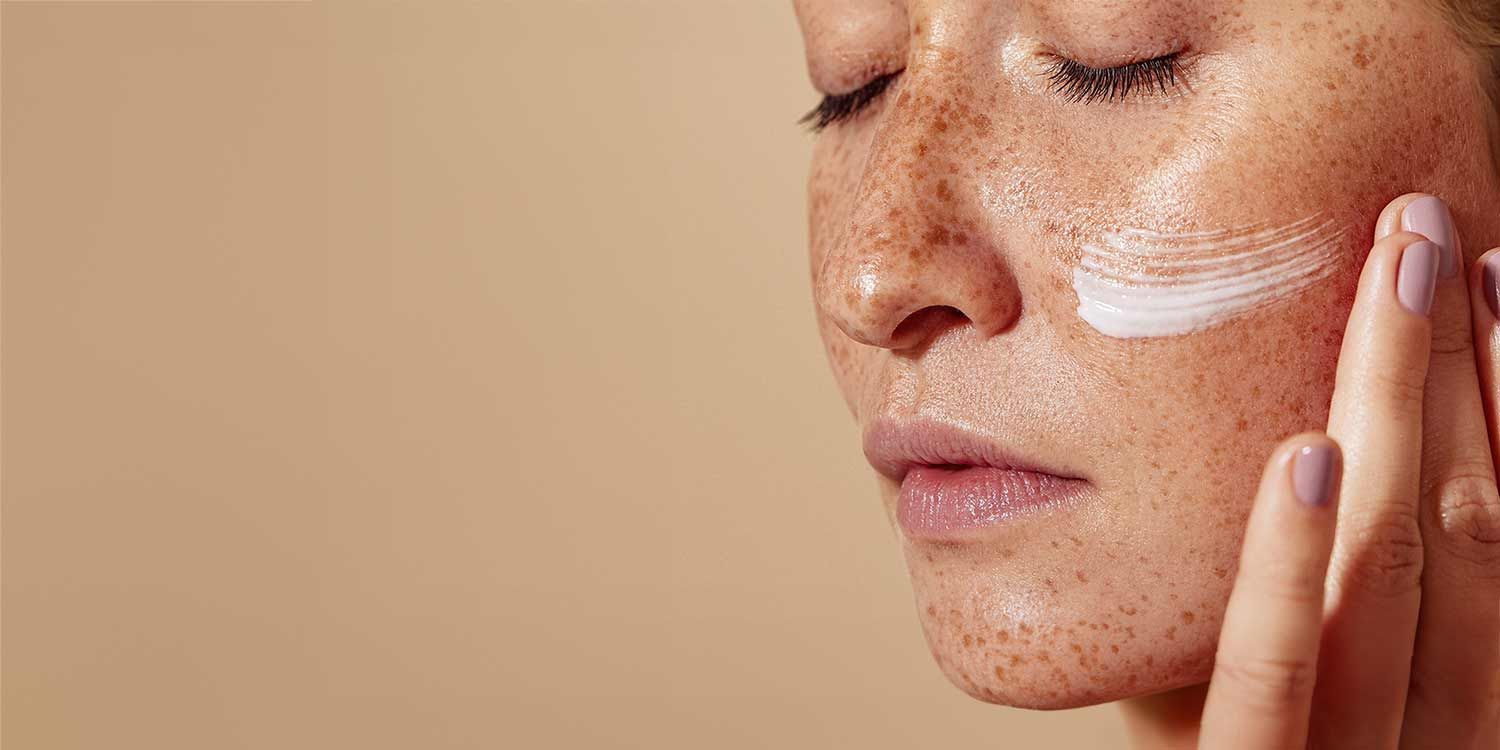The skin is our largest organ and on average it represents about 15% of our total weight. The skin covers our entire body and acts as a protective shield. Skin care today is very much about cosmetics and external care, but it is important to remember that skin care also comes from within.
Many factors can affect the health of our skin, such as dehydration, high intake of sugar and alcohol, weather and sun. Nourishing our bodies with the right substances, in sufficient amounts, can be a key to supporting our skin health. But first let's see why this is so. Because even if the skin appears smooth to the eye, the skin consists of several layers. Overall, the skin consists of three distinct layers – epidermis, dermis and hypodermis. Each layer is unique in its own cellular composition and functions.


The epidermis (outermost layer), also called the stratum corneum or the epidermis, consists of keratin, which strengthens the skin, and melanin, which gives the skin its color and protects against UV radiation. The epidermis provides protection against foreign environmental substances. The epidermis acts as the main barrier against the external environment.
The dermis lies directly under the epidermis, and is also called the dermis, it gives the skin its strength and support. Unlike the epidermis, the dermis contains nerves, blood vessels and fibroblasts (the most common cell in the dermis that builds the connective tissue), and sensory receptors. These receptors help us sense things like light and touch. It is in this skin layer that we find a lot of collagen. The dermis provides nourishment, supports the skin's structure and contains substances that bind moisture. It also allows nutrients and oxygen to enter the skin to protect its structure. New cells are formed that push against the outer layer, the epidermis, and smooth the skin.
The hypodermis is the thickest layer that lies underneath and forms the base for the epidermis and dermis and consists mainly of connective tissue and fat tissue, but also nerves and blood vessels. It is essentially insulating. There are also hair follicles and sweat glands.


Nutrients for healthy skin
Here we present some of the nutrients that can support healthy skin.
Zinc contributes to maintaining normal skin, but also hair and nails.
Vitamin C contributes to normal collagen formation, which is important for the normal function of the skin and to protect the cells against oxidative stress.
Vitamin E helps to protect the cells against oxidative stress.
Vitamin A contributes to maintaining normal skin.
B vitamins –
Vitamin B3, also called niacin or niacinamide, helps maintain normal skin.
B12 has a role in the cell division process.
Biotin contributes to maintaining normal skin and mucous membranes, but also to maintaining normal hair.

